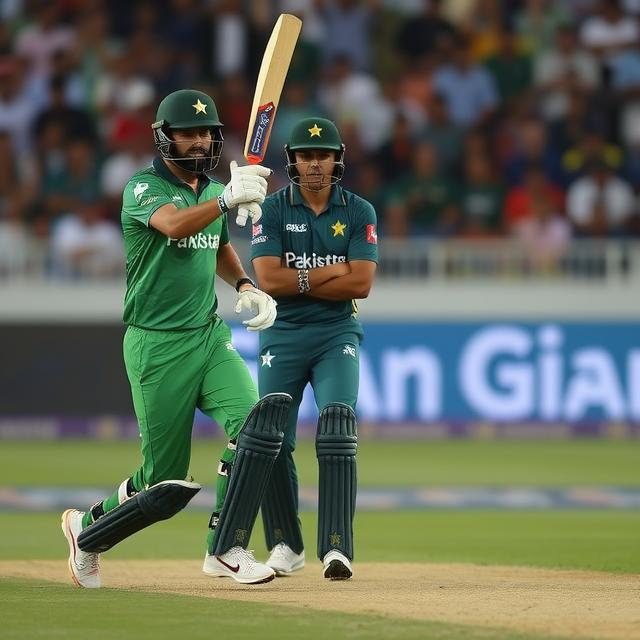Pakistan Cricket Team Coaching Staff: A Deep Dive into Expertise and Leadership

Pakistan Cricket Team Coaching Staff: A Deep Dive into Expertise and Leadership
Pakistan cricket, a sport deeply intertwined with the nation’s identity, has experienced fluctuating fortunes on the international stage. A critical component in navigating these triumphs and tribulations is the coaching staff. This article delves into the multifaceted roles and responsibilities of the Pakistan cricket team’s coaching personnel, examining their individual backgrounds, philosophies, and the overall impact they have had on the team’s performance.
Understanding the Coaching Structure
The Pakistani cricket team’s coaching staff isn’t a monolithic entity. It’s a structured hierarchy, with various roles and responsibilities. From the head coach, often overseeing the strategic direction and player development, to specialized coaches for batting, bowling, and fielding, each member contributes to the team’s holistic improvement.
This structure often involves a head coach, assistant coaches, and specialized coaches for different aspects of the game. This allows for a well-rounded approach, ensuring each player’s specific needs are addressed. The dynamics within this team, the communication strategies, and the team’s ability to adapt to changing circumstances are critical factors.
Beyond the immediate team, the Pakistan Cricket Board (PCB) plays a crucial role in shaping the overall coaching landscape. The PCB’s policies, selection processes, and long-term vision have a profound impact on the effectiveness of the coaching staff and the eventual results. This intricate interplay needs careful study.
High-Profile Coaches and Their Impact
Throughout Pakistan cricket’s history, certain coaches have left a lasting imprint. Their coaching philosophies, approaches to player development, and tactical acumen have played a pivotal role in the team’s trajectory. Analyzing these individuals offers valuable insights into the evolution of the team’s approach to the game.
Highlighting iconic figures like (insert name of a prominent coach here) and examining their coaching style can provide a deeper understanding of successful strategies. Consider factors like their individual philosophies, their impact on player development, their communication skills, and the results they achieved. These case studies are essential in evaluating effectiveness and long-term impact.
Did they primarily focus on technique, or were they more concerned with mental strength? Did their methods resonate with the playing style of the era? These are crucial questions to ponder, and the answers are often more nuanced than readily apparent.
The challenges faced by the coaches should not be underestimated. External pressures, changing playing conditions, and a fluctuating team environment present unique obstacles. An examination of these challenges and how coaches responded to them provides further insight into their leadership abilities and adaptability.
The Role of Coaching Philosophies
Different coaches bring unique approaches, philosophies, and training methodologies to the table. One coach might prioritize technical refinement, while another may focus more on mental toughness and team dynamics. This varied approach often leads to different outcomes, highlighting the importance of adapting methodologies to team needs and playing styles.
Examining the philosophies of various coaches over time helps uncover evolving trends in Pakistan cricket coaching, thereby giving us a more detailed view of how the game and the methods of coaching evolve.
The impact on players goes beyond just on-field performance. A coach’s leadership style can profoundly influence a player’s confidence, motivation, and overall approach to the game. Identifying the interplay between coaching philosophies and player performance is fundamental to understanding the entire picture.
The Shifting Landscape of Coaching
The world of cricket coaching is in a constant state of evolution, influenced by emerging technologies, tactical innovations, and a heightened awareness of player well-being. Keeping pace with these changes is crucial for any successful coaching staff.
Modern coaching techniques now embrace data analysis, performance psychology, and personalized training programs to maximize individual and team performance. How has the Pakistan cricket team adapted to these trends, and what are the areas where they still need to develop their strategies?
Furthermore, societal and cultural factors can play a vital role. Understanding the specific nuances of the Pakistani context is critical for developing effective coaching strategies that resonate with the players and the broader community. Coaches need to adapt not just their methodology, but their communication style and their approach.
Impact on Team Performance and Future Outlook
The quality of coaching directly correlates with the team’s on-field performance. Teams with strong leadership and well-defined strategies tend to achieve greater success, regardless of the lineup of individual players.
Analyzing the Pakistan cricket team’s performance over time, alongside the team’s coaching staff, allows for insights into the correlation between coaching approach and results. Were specific coaches responsible for periods of success or decline? What were the underlying factors, and what lessons can be learned for the future?
Looking ahead, the future of Pakistan cricket hinges on the ability of the coaching staff to adapt to changing trends, develop players holistically, and motivate them to perform at their peak. A deeper understanding of these factors will provide valuable insights for the future of Pakistani cricket.
Conclusion
The Pakistan cricket team’s coaching staff plays a critical role in the nation’s sporting narrative. Their expertise, philosophies, and leadership influence the team’s performance both on and off the field. A close examination of their backgrounds, methods, and impact provides valuable insights into the trajectory of the team.
From fostering technical proficiency to promoting mental resilience, the coaches contribute to the holistic development of the team. Their ability to adapt to changing conditions, player needs, and international trends will be critical for Pakistan cricket’s continued success in the future.